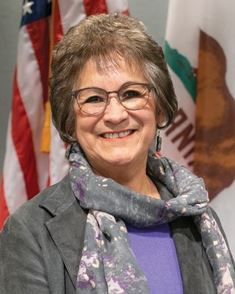By Rebecca J. Garcia, Watsonville Mayor
Soon after I was elected to the Watsonville City Council I had the opportunity to visit several farmworkers’ housing conditions. What I found was five adults and four children living in a 2-bedroom duplex, eight adults living in a studio apartment and two families living in a mold-and-mildew-infested house. Covid-19 has made these types of living situations more dire. Our Community Development Department (CDD) focuses on Planning, Building, Code Enforcement and Housing. During the pandemic I will focus on our Housing Division because the affordability and safety of housing are two of the Council’s top priorities.
In the late 1980s, I and many community members would go to city council meetings saying we needed affordable housing. We talked about the overcrowding and high cost of housing. They wouldn’t listen to us. Then the 1989 earthquake hit. Hundreds of multi-generational families were now in the streets. In 1989 the lawsuit to change to district elections also occurred and we elected a new city council. This new council took a lead in providing affordable housing and initiated an ordinance to provide affordable home ownership. Since that time the state has initiated legislation to provide affordable housing for renters, also.
Primarily there are three programs that Watsonville has to assist with homeowner affordability. The Inclusionary Ordinance requires that new housing developments provide 15-20% units that are affordable to very low to above moderate-income households. Prospective buyers may purchase the units that are affordable to them based on their household income as adjusted by household size. The First-Time Home Buyer Program (FTHB) offers low-interest loans to help low-income eligible individuals and families to purchase their first home in the City of Watsonville. Anyone who has not owned or held ownership interest on a home or other real estate within the last three years and whose annual projected gross income does not exceed the income limits based on household size is eligible and encouraged to apply. Finally, we have the Downpayment Assistance Program (DAP) that helps low to above moderate individuals and families. The DAP is operated in the same manner as the City’s First-Time Homebuyer Program, but may only be used to purchase a deed-restricted affordable unit. These programs are for home ownership.
To assist with rental affordability the City has worked with non-profit housing developers such as MidPen Housing and Eden Housing to provide 100% affordable housing for renters. The City provides loans to these developments through funding from the Successor Agency Housing Fund and the Inclusionary Housing Fund. In addition, the Santa Cruz County Housing Authority provides Project Based Vouchers to assist with housing in Watsonville. Examples of nonprofit developments include Vista Montaña, Sunny Meadows Apartments, Pippin Orchards and the Miles Lane project which was recently approved by council and is being developed now. According to state legislation, commercial developments for rental apartments also will now follow the Inclusionary Ordinance guidelines.
In response to the Covid-19 pandemic, through the Coronavirus Aid, Relief, and Economic Security (CARES) Act CDD received approximately $450,000 in Community Development Block Grant (CDBG) funds. One hundred thousand dollars were given to a local nonprofit to provide emergency housing assistance. The remaining funds were used to provide food, provide assistance to small businesses and provide wifi hot sports to homes with K-12 children. Our many partners assisted us with providing these additional services. We are hoping to receive more CDBG funding in the next couple of months to further help our residents affected by the pandemic with more emergency housing assistance.
On March 23 the Watsonville City Council was the first in the county to adopt an Emergency Eviction Moratorium Ordinance. The ordinance was to prevent Covid-19-caused evictions. Unfortunately, the majority council allowed the ordinance to expire on May 31. However, it was brought back to the Council on Aug. 25 and it was reinstated until Jan. 15, 2021. The council also directed staff to develop an in-house emergency rental assistance program to assist renters who are not able to pay their rent in full because of the pandemic. On Aug. 31 the Governor signed into law the Tenant, Homeowner and Small Landlord Relief and Stabilization Act of 2020 to further protect tenants and small landlords from evictions and foreclosures until Jan. 31, 2021. Affected tenants must demonstrate that their income has been decreased by Covid-19 or there has been an increase in out-of-pocket medical expenses. The tenants are required to pay as much rent as they are able and will pay the remaining past-due rent in an agreement with the landlord. Nonetheless, they are being protected from eviction during the pandemic.
The Watsonville Housing Division, Community Action Board, Watsonville Law Center and California Rural Legal Assistance are all resources for Watsonville residential tenants. Should any tenant receive an eviction notice they can contact any of these agencies to learn how to protect their rights under this Ordinance and State Law. Losing a house/apartment because of Covid-19 can result in homelessness. Once homeless they become more vulnerable to the pandemic. Watsonville is protecting our renter residents from the aftermath of this pandemic.
•
Mayor’s Update is a recurring column from Watsonville’s Mayor, Rebecca Garcia. Her opinions are her own and not necessarily those of the Pajaronian. Contact Garcia at re************@***************le.org.








